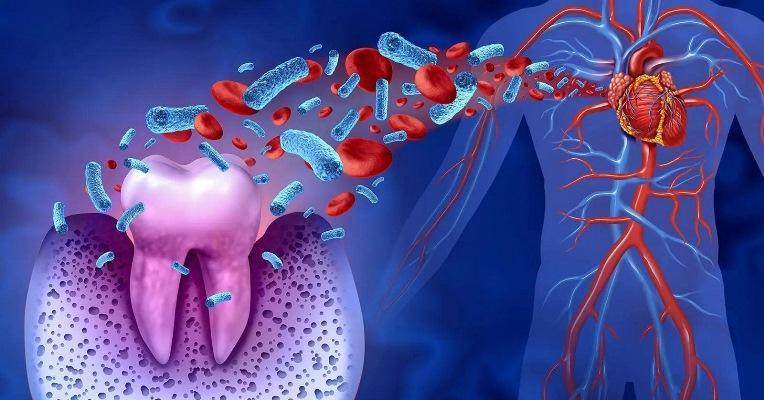Researchers recently reported that periodontal inflamed surface area (PISA), a quantitative measure of periodontal inflammation, is associated with recurrence of atrial fibrillation.

Although periodontitis is not currently considered a modifiable risk factor for the development of atrial fibrillation (AF), a recent study examined whether periodontal treatment could improve the results of catheter ablation, a minimally invasive procedure for correcting AF. It has been found that treating periodontal disease several months after the procedure can reduce oral inflammation and reduce recurrences of this irregular and often rapid heart rate in patients. This study is one of the first to examine the potential impact of periodontal disease treatment on AF.
AF affects the heart and leads to an irregular heartbeat, thereby increasing the risk of stroke, heart failure and even death. By 2030, more than 12 million people in the United States will have AF, according to the American Heart Association. Even more common than AF is periodontal disease. According to the U.S. Centers for Disease Control and Prevention, approximately half of American adults age 30 and older have some form of periodontal disease, and the incidence increases with age. So the researchers tried to find out whether improving patients' oral health could improve the results of catheter ablation.
The study was conducted from April 1, 2020, to July 31, 2022, and included 288 adults with AF who were scheduled for catheter ablation, which uses radiofrequency energy to destroy the heart tissue causing AF. Before undergoing catheter ablation for AF, all participants were examined by a dentist, and 97 of them also received treatment for periodontal inflammation.
The researchers followed the patients for 8.5 months to two years after the ablation procedure and found that AF recurred in 24% of participants during that period. In addition, they found that patients with severe periodontal inflammation who received periodontal treatment after catheter ablation were 61% less likely to have recurrent AF compared with patients who did not receive periodontal treatment.
“Correct treatment of periodontal disease appears to improve the prognosis of AF, and many people around the world could benefit from it,” lead study author Dr. Shunsuke Miyauchi, assistant professor of cardiovascular medicine at the University Health Center, said in a press release. Hiroshima in Japan.
The study also reported that those who had a recurrence of AF were found to have more severe periodontal disease than those who did not have a recurrence.
“Although the main results were as expected, we were surprised by how useful a quantitative measure of gum disease, known as PISA, could be in clinical cardiovascular practice,” said Dr. Miyauchi. The study found that a high PISA score, the sum of all bleeding sites in the periodontal pocket epithelium, predicted recurrence of AF after catheter ablation.
“We are now working on further research to identify the mechanism underlying the relationship between gum disease and AF,” he added.
